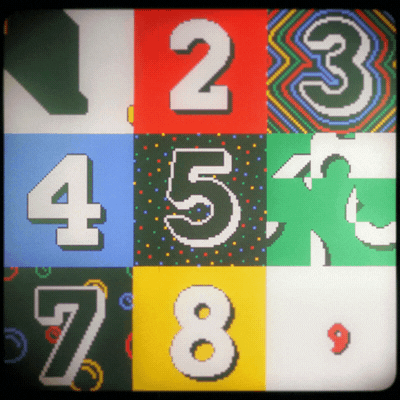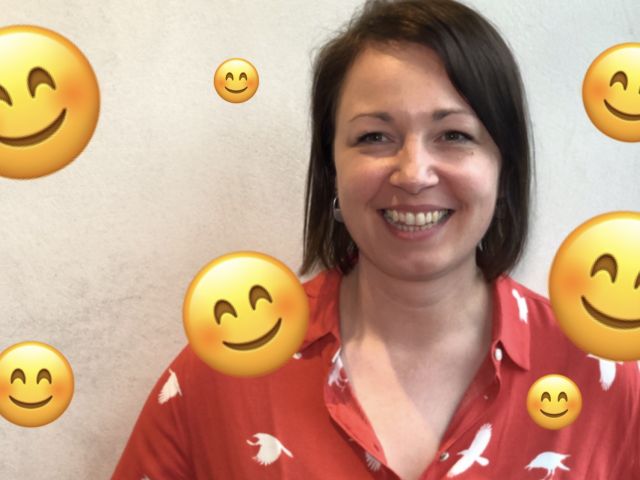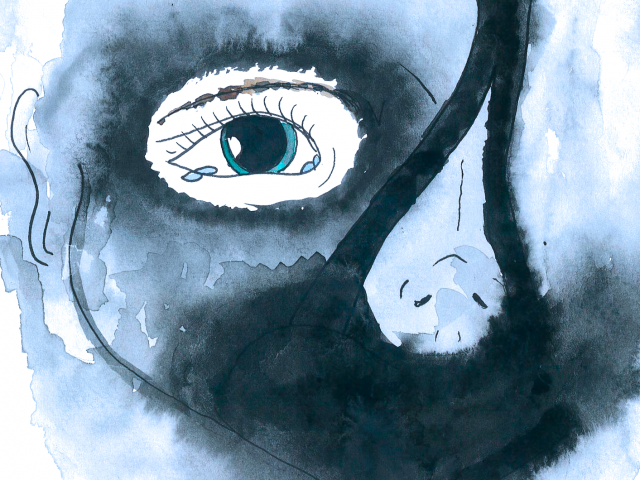Gradeless teaching makes CBS students feel more relaxed and fearful at the same time

Students at CBS are ambivalent when it comes to gradeless teaching, according to new research. (Illustration: Shutterstock)
A paradox? You can say that again. The results of trying out a whole year without grades for CBS students taking their BAs in Business Administration and Psychology showed a clear ambivalence, according to the teachers and a new research project. Students felt both more relaxed and fearful at the same time – see why below.
Around the world, students are experiencing stress and anxiety. Several studies have indicated that grades and the performance culture at many of our educational institutions bear some of the responsibility.
This is a problem recognised by Naima Mikkelsen, study director of the Business Administration and Psychology programme at CBS.
Therefore, the study board made a drastic decision in 2018.
“Some of our students thought the culture at Business Administration and Psychology had become very competitive and focused on grades. It was all about getting a fancy student job and then moving on to a great career at McKinsey or Deloitte. But these students wanted a different narrative,” Naima Mikkelsen explains and adds:
“That made us discuss how we could change this performance-oriented culture. Together with the Dean of Education and the study board, we decided to try out not grading students during their first two semesters of our education programme.”

Naima Mikkelsen is the study director of the Business Administration and Psychology programme at CBS. She shares their experiences with gradeless teaching. Photo: Ida Eriksen
The hope was that gradeless teaching would make students happier, more relaxed and better at collaborating. Another aim was to create space for in-depth learning, rather than just rehearsing the right answers to exam questions.
A loss of identity but more relaxed approach
Now, after four years of gradeless teaching during the first year of the BSc programme, CBS researchers have published a research project revealing the effects of not handing out a number to illustrate the student’s performances.
“Our results show that teaching without grades provides our students with a more relaxed approach to being scholars at university. For most, the leap from attending high school to being a university student is a major challenge. And the first two semesters without grades seem to make them calmer and more willing to try out new methods without being horrified of failing,” Naima Mikkelsen explains.
If you get the impression that this is the end of the fairy tale on teaching without grades, think again. The narrative on the experiment is not all roses and fairy dust, as Naima Mikkelsen elaborates.
“At the same time, we see that students are more anxious when their first year is almost over and the normal teaching methods with grades are close to entering their lives again. They are afraid they have not learned enough, and this produces anxiety and stress. They lack that standard scale for measuring their performance, which also causes some identity loss for some students,” she says.
Three cases of ambivalence
In the recently published scientific paper, conducted by Naima Mikkelsen, Julie Buhl-Wiggers and Annemette Kjærgaard, who are all CBS researchers, 26 students on the BA programme in Business Administration and Psychology were interviewed about their perception of the gradeless teaching.
The paper highlights three contrasting experiences:
1) A sense of relief but anxiety about the future
The students are relieved about not having to worry about grades. But on the other hand, they are anxious whether their skills are sufficient for when they start having grades again. Some students also fear not being able to go on exchange because they lack a grade sheet as evidence of their abilities.

2) Motivated to learn while scared of being too narrow-minded
Some students prioritise reading parts of the curriculum they find most interesting. Many even dive in further and read more about those subjects outside the expected learning materials.
At the same time, they approached other, less popular, subjects with rather lax study habits. They explained that they disengaged from certain subjects because there were no grades, which led them to take the subjects less seriously. This casual behavior stressed them out, however, because they feared they have been too narrow-minded in their approach to reading the curriculum.
Several students also describe that they are more willing to take risks in their assignments because of the fail/pass system. They find this liberating and in line with the purpose of being a university student, which they define as exploring, failing and trying again.

3) Feeling part of a community but losing their sense of personal identity
Lessons without grades, make students collaborate more and feel more connected to each other. Simultaneously, some students experience a loss of personal identity.
“If I’m not a straight-A person – who am I?” some state in their response. In one sense, not having grades changes aspects of the social hierarchy, leaving some students unsure of themselves. Some also miss the acknowledgement of getting a good grade, which they find motivational.
To grade or not to grade?
Clearly, teaching without grades has advantages and disadvantages. The study board are therefore currently discussing reducing the time period without grades from two to one semester for bachelor students.
“We all agree that gradeless teaching works very well early in the education programme. In the first semester, many students are struggling to find their new identities, they are moving away from home and it’s scary. Not having to worry about getting certain grades relieves a lot of pressure,” Naima Mikkelsen explains and adds:
“Some students want to receive grades again in the second semester and others really love the one-year-long break from them. So, we are still unsure of what to do.”
Whether or not the gradeless teaching will continue for one or two semesters will be decided by the end of January.






































































































































I was an undergraduate student at the SPRØK (Business, language, and culture) BSC education in the mid-1990s. At the time, we only started receiving grades in the final and sixth grade semester of the bachelor degree. For me it was great, as I loved studying for the sake of learning and felt relieved not having to be graded the whole time. However, for other students, who were more intrinsically motivated by the prospect of being graded in different subjects (i.e. subjects not graded were taken less seriously by these students), not receiving grades was not that helpful. For many of them, finally receiving grades in the sixth semester of the BSC came as a very sudden change. Hence, grading was subsequently introduced in all years of the bachelor program – at least in part as a result of student pressure. This is just to provide a bit of context for the current discussions about the role of grades/grading in CBS bachelor programs.